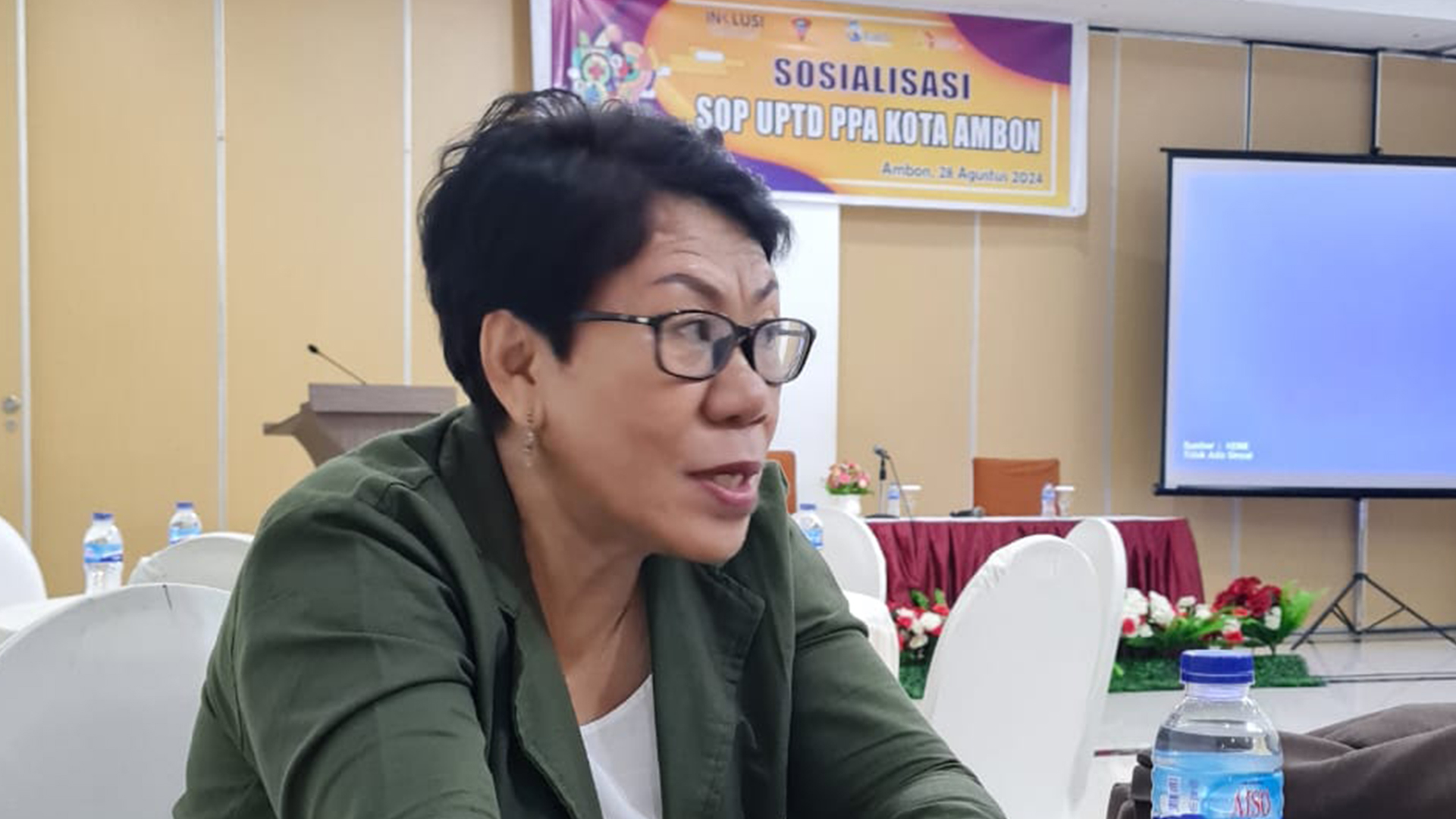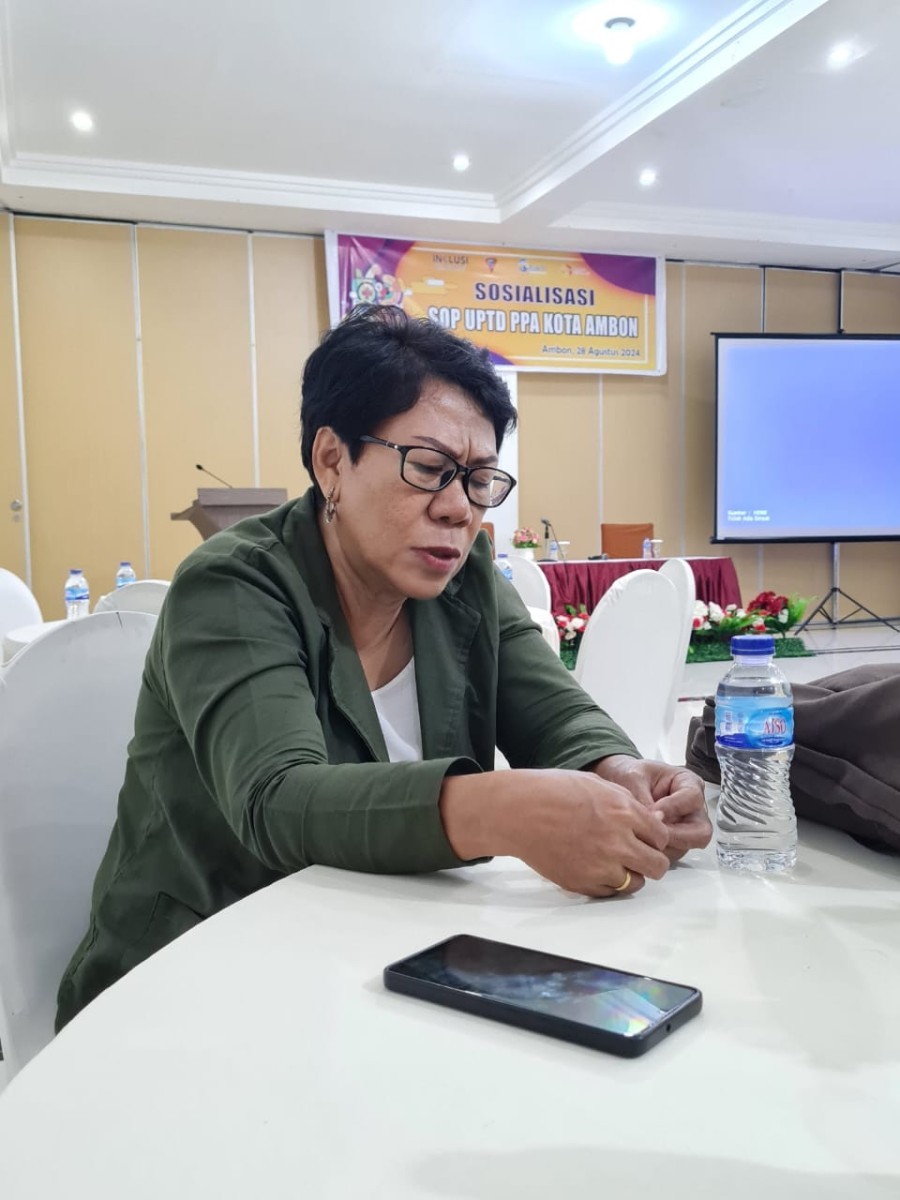indonesia - peacebuilding
Daniella 'Ella' Loupatty

- Actor/Organisation
- Daniella 'Ella' Loupatty / Wallang Perempuan
- Current Title/Designation
- Head and Co-Founder
- Expertise/Focus Area
- Protecting women victims of violence in post-conflict Ambon
- Date of Interview/Research
- August 28th, 2024
- Location of Interview
- Ambon, Maluku
- Diplomacy Track
- 2
Starting Point
Wallang Perempuan was established in 2007 by women's activists in Ambon, namely Daniella Loupatty, also known as Ella, Kiki, and Nur. It was formed to fill the void of women-specific crisis centres in post-conflict Ambon, as most humanitarian entities were too engrossed in refugee matters. It aims to combat violence against women and foster peace.
Tackling violence against women requires the participation of both Muslim and Christian activists. A Christian, Ella, worked alongside Nur, a Muslim, advocating for women in Central Maluku. This principle serves as a means to ensure peace and protect members of both ethnicities. Muslims cannot possibly harm a Christian if the Christian works alongside a Muslim, and vice versa.
Peace Journey
Ella’s background provides an interesting story about her activism. She was initially a Muslim who converted to Christianity when she married a Christian during the conflict. It created a complex social identity for her as she wasn’t deemed fully Christian, yet the Muslim community had already ostracised her for being an alleged defector. She faced a lot of pressure and violent threats from both groups, a few of which she still receives during the past few years of her work as an activist.
Those threats never hindered her spirit when she worked for Wallang Perempuan. One of the issues the foundation tirelessly advocated is the recognition of “anak/mama piara,” a term referring to the local comfort women who bred children for Indonesian military officials. Those officials—mostly Javanese—were stationed in Maluku during the conflict. Yet, their anak/mama piara and their children, who were born out of wedlock, were never adequately recognised or compensated for. Wallang Perempuan reported their existence and interests to Komnas Perempuan (National Committee for Women)
Success Stories
Reflecting on the foundation’s success, Ella envisioned it as an educational training centre that addresses cross-cutting issues of violence against women. For example, in its programme on climate change, it encourages sago-producing indigenous villages to enact a positive law prohibiting the logging of young sago trees. This prohibition helps increase the incomes of women selling sago-processed goods. It worked alongside the Phillips' CSR to distribute solar-powered lamps to remote communities to reduce violence against women.
Regarding stunting, it conducted a survey that proved the positive correlation between gender-based violence cases and stunting. It was conducted among residents of Kelurahan Benteng and Kelurahan Kuda Mati in Ambon. Although the sample size was relatively small, the survey concluded that most of the children who suffered from stunting were born to mothers who were victims of GBV. Following the survey, the foundation sent a policy brief related to stunting to the Local Department of Health and local churches.
-
Implementing AgencyAWPR Indonesia
-
Lead ResearcherArifah Rahmawati
-
Co-Researcher/Research Assistant(s)Muhammad Ryandaru Danisworo & Lintang Amartya Padmarini
-
Date ResearchJune 2024-November 2024


